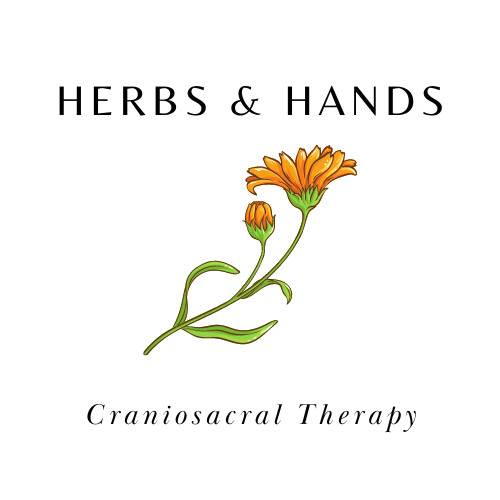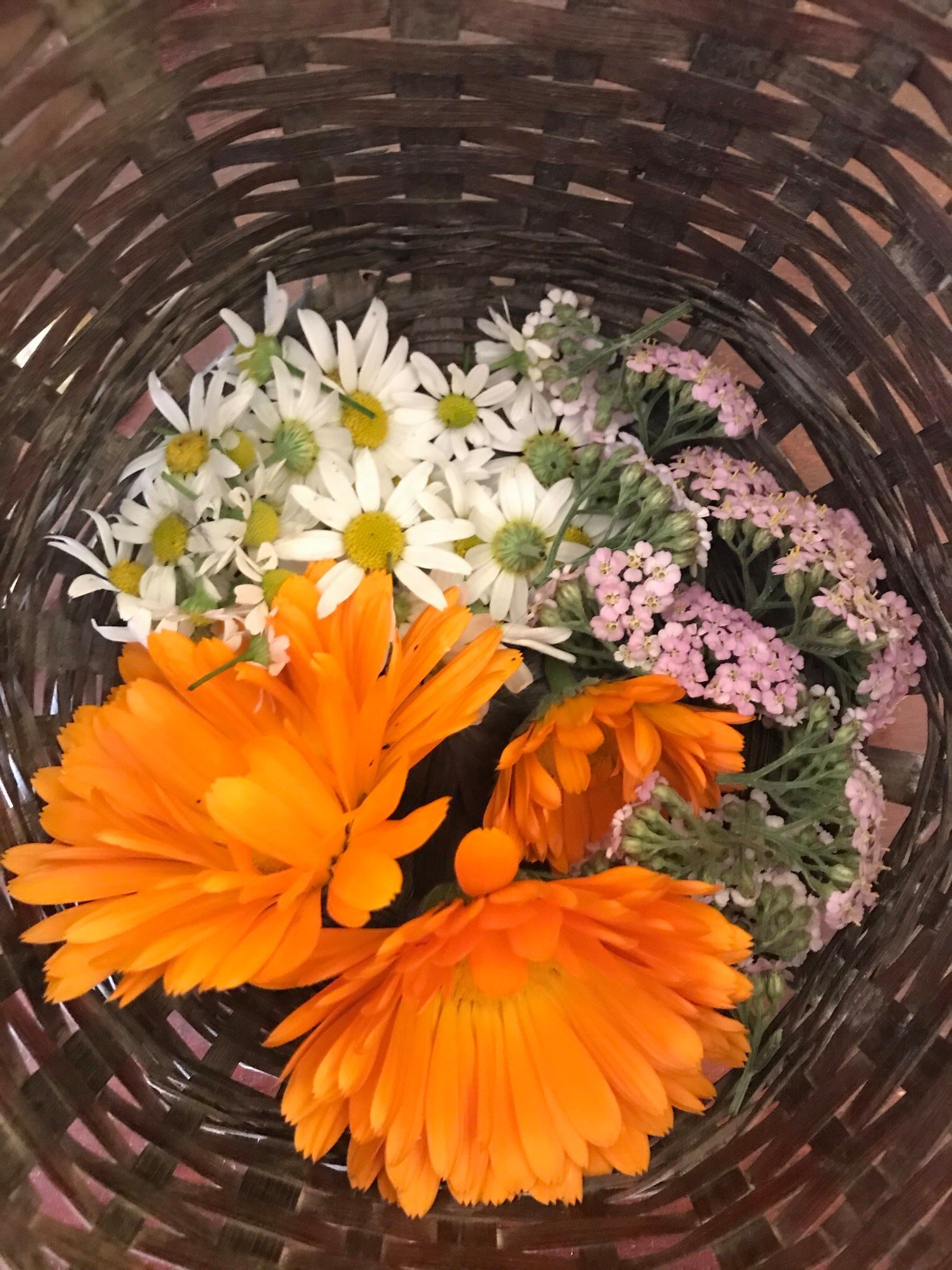
Articles by Dr. Currey
Herbs
Food
Care
Fire Cider
Fire cider is a blend of spicy and pungent herbs/foods infused in apple cider vinegar with honey added in. It is a tasty medicinal food that has been used to fend off the Winter chill and the increase in illness that comes with spending more time indoors. The ingredients are simple, easy to find herbs and foods and can be adjusted for your taste preferences. Some work with fresh plants, some with dried, and others with powdered herbs or a combination of all of the above. The mainstay ingredients are garlic, onions, horseradish, cayenne, apple cider vinegar, and honey.
Finding Balance Through Herbal Formulation
Creating an herbal formula can seem tricky at first. At first, we read about individual herbs and want to add as many powerful allies to our formula as possible. Each herb seems to have some healing property that we need. How do we choose?
When we take a step back and check in with ourselves, we can identify what state our tissues are in and then find herbs to re-establish balance. Are we hot or cold? Are we dry or full of water? Are our tissues too loose or too tight? Do we feel like we have too much energy or not enough? Where in our body are we experiencing symptoms? Is our environment hot and dry, cold and wet, or another combination? Getting a picture of where we are helps us figure out what we need. Then we can turn to the plants and their specific characters to create our formulas. Ready to get started?
Chamomile Recipes
Let’s play with chamomile. We will learn about the difference between a beverage and medicinal tea, how to take a bath in tea, a great teething soother, a colic remedy, and how to cook with these delicate blossoms.
Treating Skin Issues with Poultices
Poultices can be very helpful for healing skin issues from bites and scratches to eczema and psoriasis. Learn how to create and use a poultice for your skin health needs.
Harvesting, Processing, and Storing Your Own Herbal Remedies
My Summer has been filled with harvesting and processing herbs. Leaves, flowers, and seeds are all great summertime harvests. Most of these herbs are easy to dry and store for use later in teas, tinctures, compresses, powders, vinegars, oils, and salves. Some like St. John’s word should be used while fresh. If you are interested in growing, gathering, and making your own herbal medicines, knowing how to harvest them, process them, and store them is almost as important as knowing how to grow them.
Herbal Steams For Health
Breathing in steam is a time tested remedy for clearing the skin and the respiratory tract. When we add herbs to the hot water, we can add even more powerful action to this treatment.
Herbal Wound Care
For minor injuries and even mild infections, herbal remedies can help. We can use these medicines to heal, reduce scarring, ease pain, and prevent infection.
Spaghetti Herb Medicine
Some of the most common herbs you can find in any kitchen can be used to make a tasty spaghetti sauce. Most of them are also mint family plants making them easy to grow guests in your garden whether it is in your field, yard, balcony, or window sill. All are quite aromatic showing a high essential oil content making them great antimicrobial allies, and they are tasty and nourishing, making them safe for regular consumption in your daily diet.
Are you sold? I know I was. Let’s dive in and meet a few of these herbal allies!
Nettle Medicine
Nettle is a potently nourishing Spring tonic that has some surprising uses. As medicine, nettles help with allergies, inflammation, increasing a mother’s milk supply, increasing energy, and decreasing the size of a swollen prostate. People have been using Nettle for food, medicine, and textiles for a very long time.
Supporting Your Immune System Naturally
While I love and appreciate herbs and their abilities to help us heal in many ways, they can only do so much. It is up to us to make sure our bodies are capable of mounting a correct immune response. There are issues of genetic inheritance that do make real difference, but how we live our lives, what we eat, and how we invest our mental/emotional energy can change how our genes work. This is the field of epigenetics and is a fascinating topic to study. We will also be incorporating some of the concepts of psychoneuroimmunology in today’s topic.
The summary of what we will discuss today is as follows:
What you do matters!
That’s really it. In a world which at times can feel out of control and random, there are things we can do that can make a difference. Let’s jump right in shall we?
Herbs for Mood Support
During stressful times, having a few mood supportive herbal allies around can be a great source of solace. Let’s explore some herbal friends who can gently support us by soothing frazzled nerves and uplifting our spirits.
Lemon Balm Medicine
Lemon balm is a beautiful smelling and flavorful herb that gently soothes our frayed nerves. We can use this herb to support our memory, calm an upset stomach, support sleep, heal viral sores, calm an overactive thyroid, and gently lift us up during times of depression and heartache. Not too bad for this friend of the bees.
Calendula Recipes
Here we are, nearing the end of March and our time focusing on Calendula. We have explored the healing this flower offers, we have looked at how healthy skin on our outside and through our digestive tract functions and how active it really is. Now let’s take some time to play with some herbal medicine recipes. For this month, I will divide the recipes into three categories: Calendula oil, fresh flowers, dried flowers. Each preparation gives us different options.
Calendula Medicine
Calendula is a bright and friendly flower that is a powerful healing ally. Got a scrape, bruise, or cut - call in Calendula. Calendula is not only antimicrobial preventing infection, it also helps your body heal faster by calling in the cells you need to make new tissues and stimulating their activity. Ulcers in your digestive tract? Calendula tea taken internally is a powerhouse of healing here too.
Herbal Medicine for Beginners
Herbal medicine making can seem complex at times, but I hope to convince you otherwise. Herbal medicine is people’s medicine, and you can make gentle and effective remedies for yourself from plants growing voluntarily in your yard, plants you find at the grocery store, and plants that you choose to grow in your garden whether that is on a farm or in your window sill. You are probably already familiar with herbs such as garlic, cinnamon, basil, and ginger. Your kitchen collection of herbs and spices is rich with medicinal benefits!
Elder Medicine
Meeting Elder:
Sambucus nigrans also known as elder is my favorite medicine to use as an immune tonic. The berries are rich in antioxidants and balance your immune system particularly against viruses. I think of elderberry syrup as my flu shot especially in years when the shot has lower effectiveness.
Besides the berries, the flowers also have many benefits. Used as a tea or tincture, they are great for nasal irritation, sinusitis, and fevers with hot/dry skin (1). Used as a flower essence, elder flower is for “Integration of the shadow side. Elderflower can help us come to terms with the dark side that is within us all. It gives a sense of protection as we face this fearful challenge and promotes a deeper understanding and acceptance of the self” (2). The plant as a whole is cooling and drying with sour berries and bitter flowers.
- Adaptogens
- alcohol
- Allergy
- B Vitamins
- b12
- Basil
- beans
- Blood pressure
- Burdock
- Calcium
- Calendula
- California Poppy
- Carbohydrates
- Cardamom
- Chamomile
- Chocolate
- chromium
- Cinnamon
- Comfrey
- copper
- Craniosacral Therapy
- Dandelion
- Detoxification
- Digestion
- Fiber
- Fire Cider
- Flavonoids
- Flax
- Folate
- Food as Medicine
- Foundations of Health
- Fruit
- Ginger
- Greens
- Hawthorn
- Healing What Ails You
- Herbal Formulations
- Herbal Medicine
- Immune
- Index
- Inflammation
- Iodine
- Iron
- Lemon balm
- Liver
- magnesium
- Manganese
- Marshmallow
- Mental Health
- minerals
- Minerals
- Molybdenum
- Naturopathic Medicine
- Nettle
- Nettles
- Niacin
- Nootropics
- Nutrition
- Oregano
- Pain
- Parsley
- Peppermint
- Philosophy of Care
- Potassium
- Poultice
- Protein
- Recipe
- Recipes
- Riboflavin
- Rose
- Rosemary
- Sage
- Seed Cycling
- Selenium
- Skin
- Sleep
- Sodium
- Sunshine
- Supplements
- Thiamin
- Thyme
- Thyroid
- Turmeric
- Vitamin A
- Vitamin D
- Vitamin E
- Vitamin K
- water
- Whole Grains
- Zinc



















